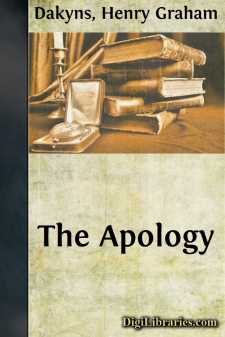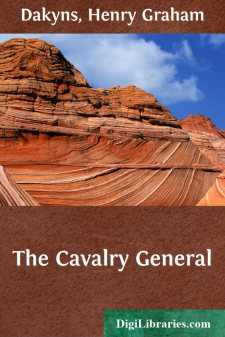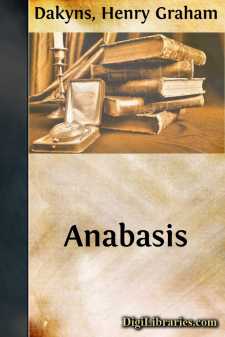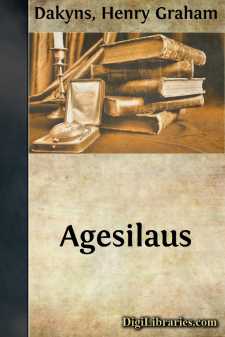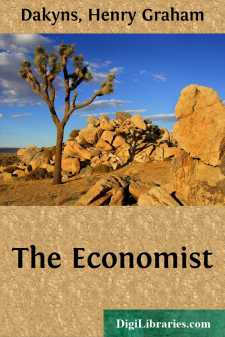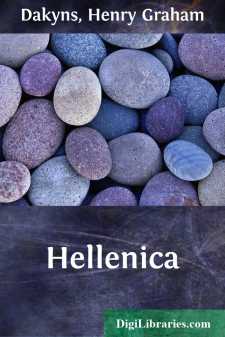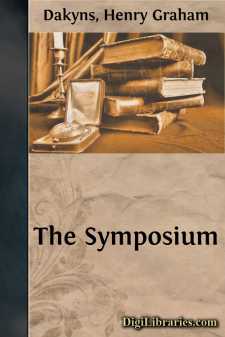Categories
- Antiques & Collectibles 13
- Architecture 36
- Art 48
- Bibles 22
- Biography & Autobiography 813
- Body, Mind & Spirit 141
- Business & Economics 28
- Children's Books 12
- Children's Fiction 9
- Computers 4
- Cooking 94
- Crafts & Hobbies 4
- Drama 346
- Education 46
- Family & Relationships 57
- Fiction 11826
- Games 19
- Gardening 17
- Health & Fitness 34
- History 1377
- House & Home 1
- Humor 147
- Juvenile Fiction 1873
- Juvenile Nonfiction 202
- Language Arts & Disciplines 88
- Law 16
- Literary Collections 686
- Literary Criticism 179
- Mathematics 13
- Medical 41
- Music 40
- Nature 179
- Non-Classifiable 1768
- Performing Arts 7
- Periodicals 1453
- Philosophy 64
- Photography 2
- Poetry 896
- Political Science 203
- Psychology 42
- Reference 154
- Religion 513
- Science 126
- Self-Help 83
- Social Science 81
- Sports & Recreation 34
- Study Aids 3
- Technology & Engineering 59
- Transportation 23
- Travel 463
- True Crime 29
Henry Graham Dakyns
Henry Graham Dakyns (1838–1911) was a British scholar and translator renowned for his translations of the works of the ancient Greek historian Xenophon. He contributed significantly to classical studies by making Xenophon's texts accessible to English-speaking audiences. Dakyns also collaborated with other notable scholars of his time, enhancing the academic understanding of ancient Greek literature and history.
Author's Books:
Sort by:
THE APOLOGY OF SOCRATES Among the reminiscences of Socrates, none, as it seems to me, is more deserving of record than the counsel he took with himself (after being cited to appear before the court), not only with regard to his defence, but also as to the ending of his life. Others have written on this theme, and all without exception have touched upon the lofty style of the philosopher, which may be...
more...
Commander of Cavalry at AthensIYour first duty is to offer sacrifice, petitioning the gods to grant you such good gifts (2) as shall enable you in thought, word, and deed to discharge your office in the manner most acceptable to Heaven, and with fullest increase to yourself, and friends, and to the state at large of affection, glory, and wide usefulness. The goodwill of Heaven (3) so obtained, you...
more...
I. Darius and Parysatis had two sons: the elder was named Artaxerxes, and the younger Cyrus. Now, as Darius lay sick and felt that the end of life drew near, he wished both his sons to be with him. The elder, as it chanced, was already there, but Cyrus he must needs send for from the province over which he had made him satrap, having appointed him general moreover of all the forces that muster in the...
more...
I To write the praises of Agesilaus in language equalling his virtue and renown is, I know, no easy task; yet must it be essayed; since it were but an ill requital of pre-eminence, that, on the ground of his perfection, a good man should forfeit the tribute even of imperfect praise. As touching, therefore, the excellency of his birth, what weightier, what nobler testimony can be adduced than this one...
more...
I I once heard him (2) discuss the topic of economy (3) after the following manner. Addressing Critobulus, (4) he said: Tell me, Critobulus, is "economy," like the words "medicine," "carpentry," "building," "smithying," "metal-working," and so forth, the name of a particular kind of knowledge or science? (1) By "economist" we now generally...
more...
HIERO, or "THE TYRANT" A Discourse on Despotic RuleIOnce upon a time Simonides the poet paid a visit to Hiero the "tyrant," (1) and when both obtained the leisure requisite, Simonides began this conversation: (1) Or, "came to the court of the despotic monarch Hiero." For the"dramatis personae" see Dr. Holden's Introduction to the "Hieron"of Xenophon. Would...
more...
BOOK IIB.C. 411. To follow the order of events (1). A few days later Thymochares arrived from Athens with a few ships, when another sea fight between the Lacedaemonians and Athenians at once took place, in which the former, under the command of Agesandridas, gained the victory. (1) Lit. "after these events"; but is hard to conjecture to whatevents the author refers. For the order of events and...
more...
ITo the gods themselves is due the discovery, to Apollo and Artemis, patrons of the chase and protectors of the hound. (1) As a guerdon they bestowed it upon Cheiron, (2) by reason of his uprightness, and he took it and was glad, and turned the gift to good account. At his feet sat many a disciple, to whom he taught the mystery of hunting and of chivalry (3)—to wit, Cephalus, Asclepius, Melanion,...
more...
IFor myself, (1) I hold to the opinion that not alone are the serious transactions of "good and noble men" (2) most memorable, but that words and deeds distinctive of their lighter moods may claim some record. (3) In proof of which contention, I will here describe a set of incidents within the scope of my experience. (4) (1) See Aristid. ii. foll. (2) Or, "nature's noblemen." (3)...
more...
BOOK III have often wondered by what arguments those who indicted (1) Socrates could have persuaded the Athenians that his life was justly forfeit to the state. The indictment was to this effect: "Socrates is guilty of crime in refusing to recognise the gods acknowledged by the state, and importing strange divinities of his own; he is further guilty of corrupting the young." (1) {oi...
more...


